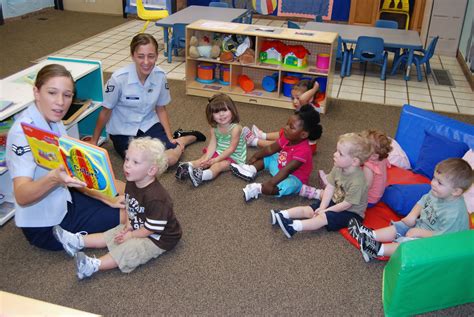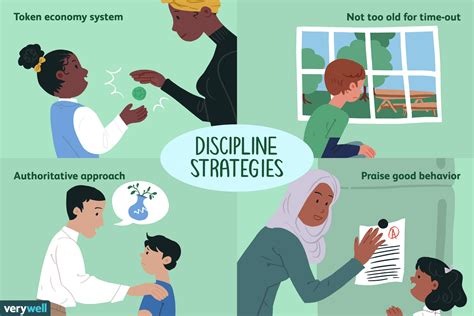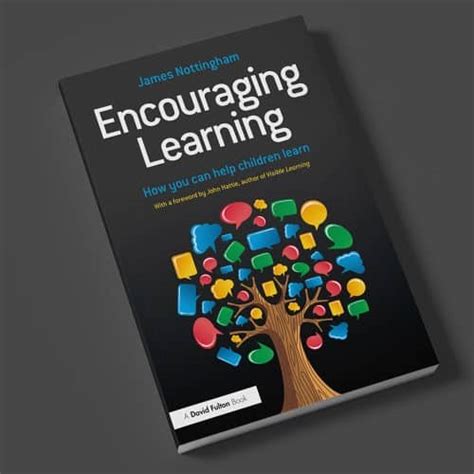Intro
Discover expert tips on raising a 2 year old, including toddler development, parenting strategies, and discipline techniques for a happy, healthy child, addressing tantrums, social skills, and emotional intelligence.
Raising a 2-year-old can be a challenging yet rewarding experience for parents. At this stage, children are learning to navigate their surroundings, test boundaries, and develop their own personalities. It's essential for parents to provide a nurturing environment that encourages growth, learning, and exploration. As children enter this stage, they begin to assert their independence, which can sometimes lead to tantrums and power struggles. However, with patience, consistency, and positive reinforcement, parents can help their 2-year-old develop essential skills and build a strong foundation for future success.
During the 2-year-old stage, children are constantly learning and absorbing information from their environment. They are developing their language skills, learning to communicate effectively, and beginning to understand social cues. Parents play a significant role in shaping their child's language skills, and engaging in conversations, reading books, and singing songs can help stimulate their language development. Moreover, 2-year-olds are naturally curious, and providing them with a safe and stimulating environment can encourage exploration and learning.
As children enter this stage, they are also learning to manage their emotions and develop emotional regulation skills. Parents can help their 2-year-old develop these skills by labeling and validating their emotions, teaching empathy, and modeling healthy emotional expression. It's essential to remember that every child is unique, and what works for one child may not work for another. By being responsive to their child's needs, parents can help their 2-year-old develop a strong sense of security and attachment, which is crucial for healthy development.
Understanding Child Development

Physical Development
Physical development is a critical aspect of child development, and 2-year-olds are constantly refining their gross and fine motor skills. They are learning to navigate their surroundings, climb stairs, and kick balls. Parents can encourage physical development by providing a safe and stimulating environment, engaging in physical activities, and encouraging exploration. Some essential physical milestones for 2-year-olds include:- Walking independently
- Running with support
- Climbing stairs with assistance
- Kicking a ball forward
- Throwing a ball overhead
Cognitive Development
Cognitive development is also rapidly progressing in 2-year-olds. They are beginning to understand object permanence, cause-and-effect relationships, and problem-solving skills. Parents can encourage cognitive development by engaging in activities that promote learning, such as reading books, singing songs, and playing games. Some essential cognitive milestones for 2-year-olds include:- Imitating actions
- Pointing to body parts
- Following simple instructions
- Demonstrating an understanding of object permanence
- Showing an interest in books and reading
Discipline and Boundary Setting

- Setting clear boundaries and expectations
- Using positive reinforcement, such as praise and rewards
- Modeling good behavior and emotional regulation
- Providing choices and encouraging decision-making
- Using natural consequences, such as taking away a toy that is being used inappropriately
Positive Reinforcement
Positive reinforcement is a powerful tool for encouraging positive behavior in 2-year-olds. By focusing on what the child is doing right, rather than what they are doing wrong, parents can encourage positive development and reinforce good behavior. Some ways to use positive reinforcement include:- Praising the child for good behavior
- Providing rewards, such as stickers or small treats
- Giving hugs and affection
- Providing choices and encouraging decision-making
- Modeling good behavior and emotional regulation
Modeling Good Behavior
Modeling good behavior is essential for 2-year-olds, as they learn by observing and imitating their caregivers. Parents can model good behavior by demonstrating respect, empathy, and self-regulation skills. Some ways to model good behavior include:- Demonstrating respect for others
- Showing empathy and understanding
- Regulating emotions and managing stress
- Using good manners and social skills
- Engaging in positive activities, such as reading and playing games
Encouraging Learning and Development

- Providing a stimulating environment, such as a playroom or outdoor play area
- Engaging in activities that promote learning, such as reading books and singing songs
- Encouraging exploration and discovery
- Providing opportunities for socialization, such as playdates and preschool
- Encouraging physical activity, such as running and climbing
Play-Based Learning
Play-based learning is an effective way to encourage learning and development in 2-year-olds. By engaging in play, children can develop essential skills, such as problem-solving, critical thinking, and creativity. Some ways to incorporate play-based learning include:- Providing play materials, such as blocks, puzzles, and playdough
- Engaging in imaginative play, such as dress-up and pretend play
- Encouraging outdoor play, such as running and climbing
- Providing opportunities for sensory play, such as play with sand and water
- Encouraging music and movement, such as dancing and singing
Socialization and Friendship
Socialization and friendship are essential for 2-year-olds, as they help children develop essential social skills, such as communication, empathy, and cooperation. Parents can encourage socialization and friendship by providing opportunities for playdates, preschool, and other social activities. Some ways to encourage socialization and friendship include:- Arranging playdates with other children
- Enrolling the child in preschool or daycare
- Encouraging participation in group activities, such as music and movement classes
- Modeling good social skills, such as sharing and taking turns
- Encouraging empathy and understanding, such as talking about feelings and needs
Common Challenges and Solutions

- Tantrums: Stay calm, validate emotions, and provide choices
- Picky eating: Offer a variety of foods, make mealtime positive, and avoid forcing food
- Bedtime struggles: Establish a bedtime routine, create a sleep-friendly environment, and avoid screens before bedtime
- Separation anxiety: Gradually separate, establish a goodbye ritual, and provide reassurance
- Aggression: Model good behavior, teach empathy, and provide positive reinforcement
Tantrums and Emotional Regulation
Tantrums and emotional regulation are common challenges for 2-year-olds. By understanding the underlying causes of tantrums and using effective strategies, parents can help their child develop essential emotional regulation skills. Some ways to manage tantrums and promote emotional regulation include:- Staying calm and patient
- Validating emotions and providing empathy
- Providing choices and encouraging decision-making
- Modeling good emotional regulation, such as taking deep breaths and counting to 10
- Encouraging physical activity, such as running and climbing, to release tension
Picky Eating and Nutrition
Picky eating and nutrition are essential aspects of raising a 2-year-old. By providing a variety of foods, making mealtime positive, and avoiding forcing food, parents can encourage healthy eating habits and promote optimal nutrition. Some ways to encourage healthy eating habits include:- Offering a variety of foods, including fruits, vegetables, and whole grains
- Making mealtime positive, such as turning off the TV and engaging in conversation
- Avoiding forcing food, such as not pushing the child to finish a meal
- Providing healthy snacks, such as fruits and cheese
- Modeling good eating habits, such as eating a variety of foods and trying new things
Conclusion and Final Thoughts

We invite you to share your thoughts and experiences on raising a 2-year-old. What challenges have you faced, and how have you overcome them? What strategies have you found to be effective in promoting healthy development and encouraging learning? Share your comments and questions below, and let's work together to support each other in our parenting journey.
What are the most essential skills for a 2-year-old to develop?
+The most essential skills for a 2-year-old to develop include language skills, social skills, emotional regulation, and cognitive skills. These skills provide a foundation for future success and help children navigate their surroundings, form relationships, and develop a sense of self.
How can I encourage my 2-year-old to develop healthy eating habits?
+To encourage healthy eating habits in your 2-year-old, offer a variety of foods, make mealtime positive, and avoid forcing food. Provide healthy snacks, model good eating habits, and involve your child in the cooking process to promote interest and engagement.
What are some effective strategies for managing tantrums in 2-year-olds?
+Effective strategies for managing tantrums in 2-year-olds include staying calm, validating emotions, providing choices, and modeling good emotional regulation. Avoid punishing or scolding, as this can escalate the situation and undermine the child's sense of security.
How can I support my 2-year-old's cognitive development?
+To support your 2-year-old's cognitive development, engage in activities that promote learning, such as reading books, singing songs, and playing games. Provide a stimulating environment, encourage exploration and discovery, and model good problem-solving skills to promote critical thinking and creativity.
What are some common challenges that parents of 2-year-olds face, and how can they overcome them?
+Common challenges that parents of 2-year-olds face include tantrums, picky eating, and bedtime struggles. To overcome these challenges, parents can use effective strategies, such as staying calm, validating emotions, and providing choices. They can also seek support from family, friends, and healthcare professionals to promote healthy development and well-being.
